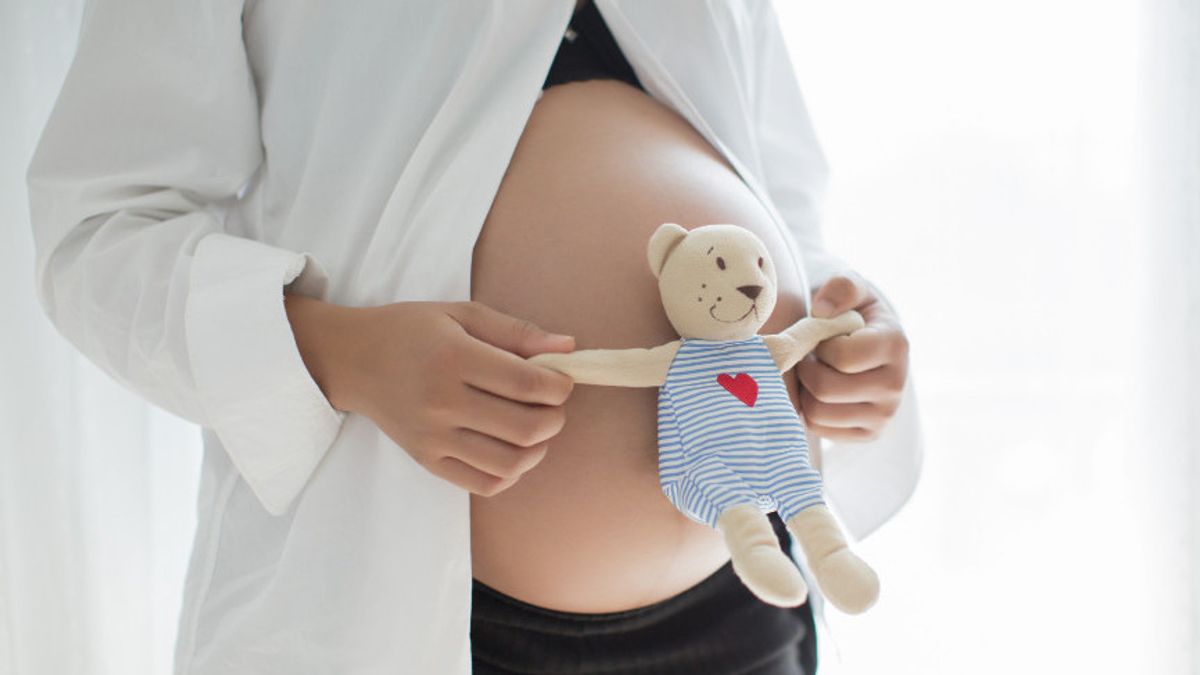YOGYAKARTA - In the final weeks of pregnancy, many babies are in a position ready to be born. Generally, the baby's head moves down to the mother's pelvis. In this phase, there are several things that pregnant women should avoid to maintain the safety of themselves and their babies.
In general, it is difficult to determine when exactly the baby's head will go down to the pelvis. Usually, this happens before the estimated date of birth, but there are also babies who just go down when the delivery process begins. This condition varies with every pregnant woman and everything is still considered normal.
Signs Of Baby Down To Panggul Ahead Of Childbirth
When the baby's head starts to enter the pelvis, pregnant women may feel some physical changes. Some mothers feel increased pressure on the pelvis and bladder. Pain may appear in the lower abdomen, uterus, or even the spine. Even so, not all pregnant women experience the same symptoms.
The Baby Center site illustrates that when a baby first moves down, its head (or hit it if the baby is in a low position) will look lower than before. The head will continue to move further down, until the widest part enters the pelvis. When this happens, the baby is in a stable and ready to be born.
During the last month of pregnancy, doctors will check whether the baby has reached a position called "engagement" or has entered the pelvic. By gently pressing the lower part of the stomach, doctors can find out how far the baby has gone to the pelvis. In medical records, doctors will note this position, such as 5/5 or 4/5 if the baby has not fully entered the pelvis, and 3/5 or lower if the baby is already in an engagement position. Another term that may be used is NE (Not Engaged) or E (Engaged).
When the baby has gone down to the pelvis, there are several activities that should be avoided to maintain the safety of mothers and babies.
1. Up and down the stairs
Dr. Sangeeta Agrawal, a obstetrician, explained that ups and downs of stairs becomes more difficult at the end of pregnancy. At the beginning of pregnancy, climbing stairs may still be safe if the body's balance is maintained. However, in the third trimester, changes in the center of body gravity can increase the risk of falling.
Pregnant women are advised to avoid this activity, because falling can cause complications in pregnancy. If you have to climb the stairs, you should do it slowly by holding the handle of the stairs as a support.
2. Extreme Ride in the Entertainment Park
Avoiding extreme rides in entertainment parks is also important, especially at the end of pregnancy. Rides such as rollersterships or awing boats produce strong shocks, which can cause placenta solutions or the release of placentas from the uterine walls. Pregnant women should avoid this kind of ride to prevent health risks in the fetus.
3. Clean up the animal droppings
If pregnant women care for pets such as cats, they should avoid cleaning up their droppings. Cat droppings contain parasites such as gondii Toxoplasma which can cause harmful infections, especially for pregnant women and their fetuses. Toxoplasmosis can cause serious problems in the fetus, so it is important to be careful in avoiding contact with animal droppings.
4. Soak In Warm Water
Warm baths should be avoided, because they can increase the body temperature of pregnant women. Body temperatures that are too high can have a bad impact on the fetus and risk causing birth defects. In addition, taking too long warm water can cause dehydration. Instead, pregnant women are advised to take a bath using warm water with nails or cold water.
SEE ALSO:
5. Using High Rights Shoes
In the final stages of pregnancy, the center of gravity of pregnant women changes, which makes it easy to lose balance. Using high heels can increase the risk of falling and also put additional pressure on the back. Dr. Layan Alrahmani, a specialist in obstetrics and gynecologists, suggests that pregnant women choose comfortable and flat footwear to reduce the risk of falling.
In addition, read also: How to Get Babies To Enter Panggul Quickly
So after knowing what should not be done when the baby has entered its pelvis, see other interesting news on VOI.ID, it's time to revolutionize news!
The English, Chinese, Japanese, Arabic, and French versions are automatically generated by the AI. So there may still be inaccuracies in translating, please always see Indonesian as our main language. (system supported by DigitalSiber.id)
















